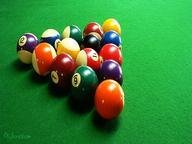
World Snooker Championship: 1990-1999 Quiz
Stephen Hendry won 7 out of 10 World Snooker Championships in the 1990s, so for this quiz I'll give you the year and the winner. Can you find the runner-up?
A matching quiz
by MickeyDGod.
Estimated time: 3 mins.